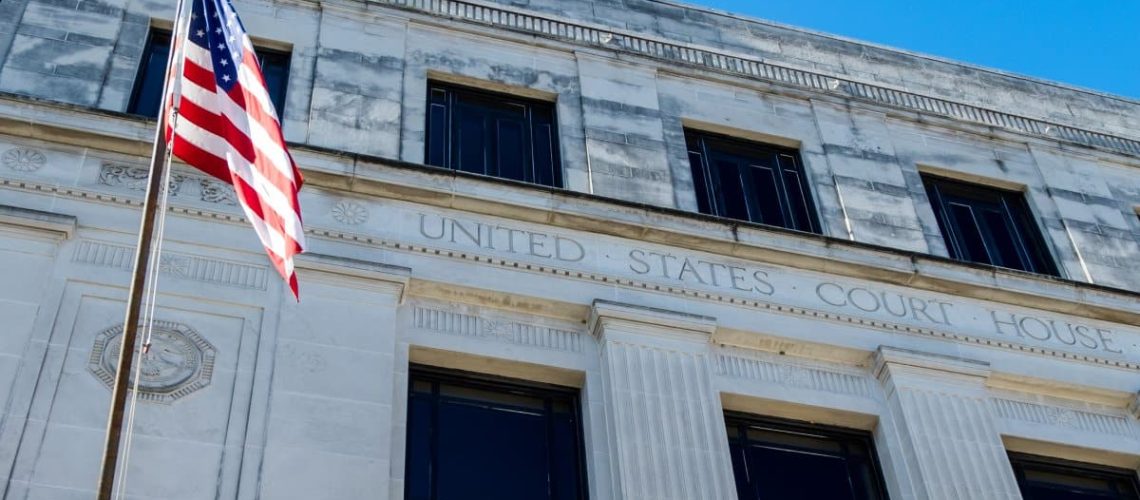In a recent landmark decision, the Alabama Supreme Court made a ruling that could change the landscape of in-vitro fertilization (IVF) in the state. Here’s what you need to know about this decision and its potential impact on families struggling with infertility.
Alabama Supreme Court Rules on IVF Embryos

So, what happened? Well, the Alabama Supreme Court, in a 7-2 decision, ruled that embryos created through IVF should be protected under a law called the Wrongful Death of a Minor Act.
Legal Precedent

This means that these tiny, fertilized eggs are now legally considered children, marking a considerable shift in how the legal system views reproductive matters.
LePage v. Mobile Infirmary Clinic, Inc.

The case in question, LePage v. Mobile Infirmary Clinic, Inc., unfolded as a nightmarish scenario for the intended parents.
Intruder Breaches IVF Clinic

An intruder breached an IVF clinic, causing trays containing embryos to be dropped and destroyed.
In an unprecedented move, several intended parents argued that their “embryonic children” had suffered a wrongful death, leading to a pivotal legal battle.
Pivotal Legal Battle

The Alabama Supreme Court had to weigh in on whether these embryos count as babies in the eyes of the law.
In a surprising move, the court ruled in favor of these parents, allowing them to proceed with a wrongful death lawsuit against the clinic.
IVF Embryos Deemed Children

Now, embryos created through IVF fall under the protection of the Wrongful Death of a Minor Act, at least under the law in Alabama.
Interpretation of the Law

Let’s break it down a bit. The majority opinion, delivered by Alabama Supreme Court Associate Justice Jay Mitchell, is that the Wrongful Death of a Minor Act is comprehensive and inclusive.
Mitchell stated, “It applies to all children, born and unborn, without limitation.”
Constitutional Basis

To support this interpretation, he pointed to a part of the Alabama Constitution called the Sanctity of Life Amendment, which says the state should value unborn life.
Biblical References in the Court’s Opinion

But here’s where it got controversial – the court’s opinion dove into religious territory by quoting a verse from the Bible.
Religious Convictions and Legal Interpretation

Drawing from Jeremiah 1:5, the opinion stated, “We believe that each human being, from the moment of conception, is made in the image of God, created by Him to reflect His likeness. It is as if the People of Alabama took what was spoken of the prophet Jeremiah and applied it to every unborn person in this state: ‘Before I formed you in the womb I knew you, Before you were born I sanctified you.'”
Implications for Reproductive Rights

This biblical reference is a key factor in explaining the court’s decision, but it has also caused some unease, prompting questions about blending religious convictions with legal issues.
Impact on Infertility Treatment

So, what does all this mean for you? Well, if you’re one of the many people dealing with infertility issues and considering IVF, it could mean trouble.
IVF clinics in Alabama might start having a tricky time offering their services, which could make it tough for couples hoping to start a family.
Concerns for Patients

Alabama’s expansive network of agencies, clinics, and egg banks faces an uncertain future, where the Supreme Court’s decision could significantly limit access to IVF services.
National Infertility Association’s Response

Barb Collura, who heads up Resolve: The National Infertility Association, is seriously worried about the fallout.
She said, “Alabama’s Supreme Court ruling is a terrifying development for the 1 in 6 people impacted by infertility who need in-vitro fertilization to build their families.”
Potential Effects on Fertility Clinics

Collura emphasized the severe potential outcomes, such as the effect on the quality of care offered by the state’s fertility clinics and the potential inability to provide services like IVF, which are recognized as standard medical treatments for infertility.
Debate Over Reproductive Rights

Collura’s sentiments are echoed by many within the medical and legal communities, who fear that the ruling will set a dangerous precedent and infringe upon reproductive rights.
Uncertainty for Families

The implications of this change in embryonic recognition under the law have plunged families who currently have embryos stored at these clinics into uncertainty.
Legal Status of Stored Embryos

The court’s decision has thrown into question the legal status and future of these embryos.
Will families still be able to use those embryos to try for a baby? It’s a tough situation for anyone going through the already stressful process of fertility treatments.
Balancing Religious Beliefs and Patient Rights

As Alabama deals with the aftermath of this ruling, you can expect the argument about things like reproductive rights, medical ethics, and how religion influences public policy to heat up even more.
Challenges for Those Seeking Parenthood

The ripple effects of this ruling will likely extend beyond state borders, and stakes remain high for individuals and families grappling with infertility and seeking to exercise their right to build a family.
The post Alabama Supreme Court Decision Raises Concerns for Future of IVF Clinics first appeared on Pulse of Pride.
Featured Image Credit: Shutterstock / Rex Wholster.

